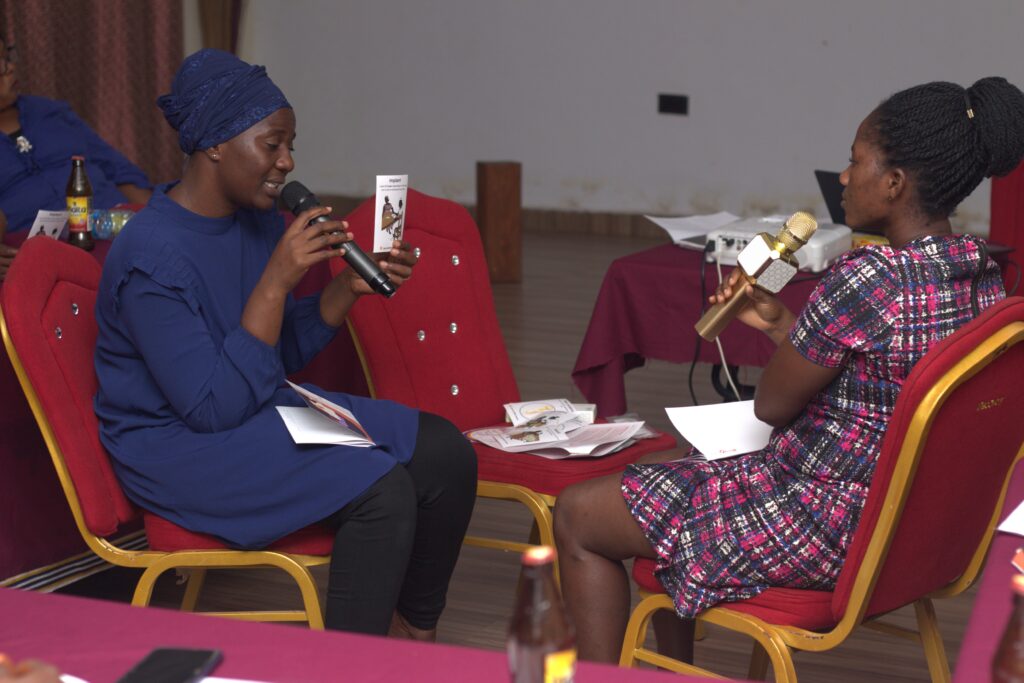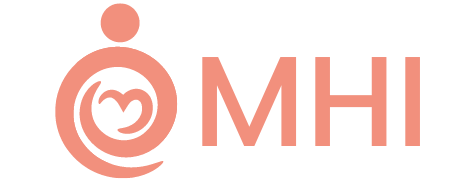Mini-pilot
An overview of MHI’s ‘mini-pilot’ across the Savannah and Northern Regions of Ghana.
An overview of MHI’s ‘mini-pilot’ across the Savannah and Northern Regions of Ghana. This page provide key excerpts from our report analysing the project. To download the full report, please click here.
When?
Where?
June-November 2023
Buipe, Salaga, and Bole hospitals in the Savannah Region; Tamale Central, Tolon, and Savelugu hospitals in the Northern Region

Executive Summary
- In this project, the Maternal Health Initiative (MHI) and Savana Signatures worked together to implement a programme aiming to increase contraceptive knowledge and uptake. This program focused on training nurses and midwives on delivering an adjusted model of contraceptive counselling integrated into routine postpartum appointments.
- This was a pilot project in which we aimed to compare the value of one-to-one family planning counselling during routine postnatal care sessions (PNC) against the value of short messaging and family planning referral integrated into child welfare clinic sessions (CWC)
- Data from the project suggests that while there were small increases in knowledge and intention to use, reported use of contraceptives declined between baseline and endline surveying. We believe issues with the wording and timing of surveying may be partially responsible for this reported decline in contraceptive uptake.
- Implementation quality was sufficient to suggest that these programs were not as impactful as hoped. Concerns around the program’s value are exacerbated by high rates of postpartum insusceptibility through abstinence and breastfeeding. These suggest that contraceptive uptake in the postpartum period is substantially less impactful than we initially thought. As such, while we believe the program could be improved and offers value, we are choosing not to scale up this work.
Overview
This project aimed to test the value of individual PNC family planning counselling with the value of incorporating family planning counselling into CWC immunisation. As such, two separate training sessions were run, one focused on PNC and the other on CWC.
For the PNC session, 23 staff attended from 3 facilities in the Savannah Region (Bole, Salaga, and Buipe). For the CWC session, 24 staff attended from 3 facilities in the Northern Region (Tolon, Savelugu, Tamale Central).
Discussions with the Northern and Savannah Regional Health Directorates were held through June and July 2023, resulting in approvals for the project. Programming materials were designed by MHI’s team in collaboration with their network of international advisors, with consistent input and collaboration from the Savana Signatures team.
Timeline
July 2023 | Phase 1 – Formative Research
Refined program design through engagement with facility stakeholders and baseline data collection. Completed baseline data collection through structured questionnaires conducted with providers and postpartum women at facilities. |
August – November 2023 | Phase 2 – Intervention
Ran the training sessions in August 2023, beginning the process of implementing the intervention packages. This included an assessment of providers’ knowledge and attitudes towards family planning, and ongoing monitoring work to ascertain the quality of implementation including utilisation of Savana Signatures’ SHE+ Helpline. |
November – December 2023 | Phase 3 – Evaluation
Conducted endline data collection through structured questionnaires conducted with postpartum women at the facilities. This follow-up data was collected 3 months after the training sessions concluded, with subsequent collection of facility record data. |
Implementation
Data Collection
Baseline Surveying
100 clients were surveyed across the six intervention facilities. Clients were selected who had recently attended either postnatal care (0-6 weeks post-birth) or a child immunisation/weighing session (6 weeks-2 years post-birth).
30 providers were also surveyed to understand their current knowledge of family planning to identify what material should be prioritised for the training sessions. Finally, the surveying team completed an observation of current care practices and a short data collection form on contraceptive stock and management processes at each facility.
Midline Surveying
Sample numbers were repeated for a midline survey conducted 1-month after the training sessions occurred. For some facilities, data collection was delayed by issues with heavy rains and flooding that prevented clients from attending the facilities on the planned surveying dates.
3-Month Surveying
Endline surveying was completed in November 2023, 3 months after the training sessions occurred. Provider surveys were dropped from this surveying round to focus on assessing changes in client knowledge and behaviour: the key goals of the intervention packages.
Training
Training sessions ran in October 2023 and were facilitated by Sulemana Hikimatu (Senior Health Tutor and Public Health Nurse at Community Health Nurses Training School (CHNTC) -Tamale).
Sessions were delivered via lectures and interactive components, including role-play in pairs. For both sessions, the goal of this training was to improve the quality of information shared by providers of family planning counselling, so women can make informed decisions and go on to have happier and healthier futures.
Training included information on the benefits of family planning, how to respond to common concerns and misconceptions, principles of effective counselling, and management of side effects. Each training then focused on explaining the counselling materials provided to attendees, tailored either to PNC or CWC care. An explanation of the materials for each intervention arm, and their intended use at the facility, is provided below.
Results
Intervention Arm 1: Postnatal Care (PNC)
Summary
Across the three facilities (Salaga; Bole; Buipe) in the Savannah region, there was generally strong implementation of care in line with the training. Changes to care resulted in minor to moderate increases in four out of five knowledge metrics measured. There was an average 2% increase in intention to take up a method of contraception across the facilities, though a 5% decrease in modern contraceptive uptake.
We believe the decrease in uptake is likely due to an unclear wording of the surveying question that led to much higher rates of reported contraceptive use at baseline and endline than regional or national averages. Results may also have been affected by the surveying of clients immediately upon their exit from the facility, along with high rates of reported sexual abstinence.
Intervention Arm 2: Child Welfare Clinics (CWC)
Summary
Across the facilities where the child welfare clinic model was tested (Tolon; Savelugu; Tamale Central), there was generally a moderate level of group talk implementation and a mixed level of one-to-one counselling at vaccination.
Knowledge increases were found across four out of five key metrics, with a 12% increase in intention to use a method of contraception. However, we recorded a 13% decrease in modern contraceptive use rate (mCPR). The same reasons around survey wording and timing discussed for the PNC intervention arm apply equally to the CWC intervention. As such, we think that the significant decrease in contraceptive use rate should be interpreted with caution.
Conclusions
Overall, it appears the projects were fairly unsuccessful in achieving their goals. While knowledge increases were measured across both intervention arms, contraceptive uptake declined in both cases.
Additionally, we have significant concerns about the value of contraceptive uptake based on research conducted through the data analysis process. Very high rates of both breastfeeding and abstinence were reported across our surveying samples, with 75% of clients at CWC reporting prolonged abstinence. The combination of these two behaviours is likely to provide only a small reduction in protection from pregnancy compared to using a modern method of contraception. As such, it seems likely that contraceptive uptake at or shortly after a PNC session is providing little benefit to clients, greatly undermining the value of this project.
Concerns around high breastfeeding and abstinence rates would suggest that the CWC intervention arm is likely to be of greater value given it is reaching women who are further along in the postpartum period. However, this program performed poorly with no clear evidence of its value in driving knowledge change or shifts in contraceptive behaviour.
Given these concerns, we believe the project results suggest that the project could be improved, it should not be scaled up. We are mindful of the time pressures on the Ghana Health Service and its staff, as well as the scarcity of funding that could be spent on projects with stronger evidence of impact. Given this, we do not feel that further implementation of changes to care that may increase the workload of frontline staff is justified without clear evidence of their value.
We welcome any further engagement with these results, this project, or the Maternal Health Initiative’s mission in general.
Acknowledgements
We would like to thank the many people who played a pivotal role in making this project possible. Thank you to Emefa Yawa Ehla, Rahana Mohammed, Racheal Ewura Abena Antwi, and the rest of the Savana Signatures team for their hard work and insight throughout the delivery of this and prior projects. Thank you to our skilful facilitator, Sulemana Hikimatu Tibangtaba, for delivering high-quality training sessions. Thank you to Sofía Martínez Gálvez and Catherine Fist for their insights and endeavour as MHI staff helping to design and implement this project. Thank you to MHI’s many volunteers and interns who gave up their time and energy for free, particularly Jemima Jones, Wan Yun Tan, Maxine Wu and Samuel Harvey.
Lastly, thank you to MHI’s donors and supporters, without whom this project would not have been possible.

